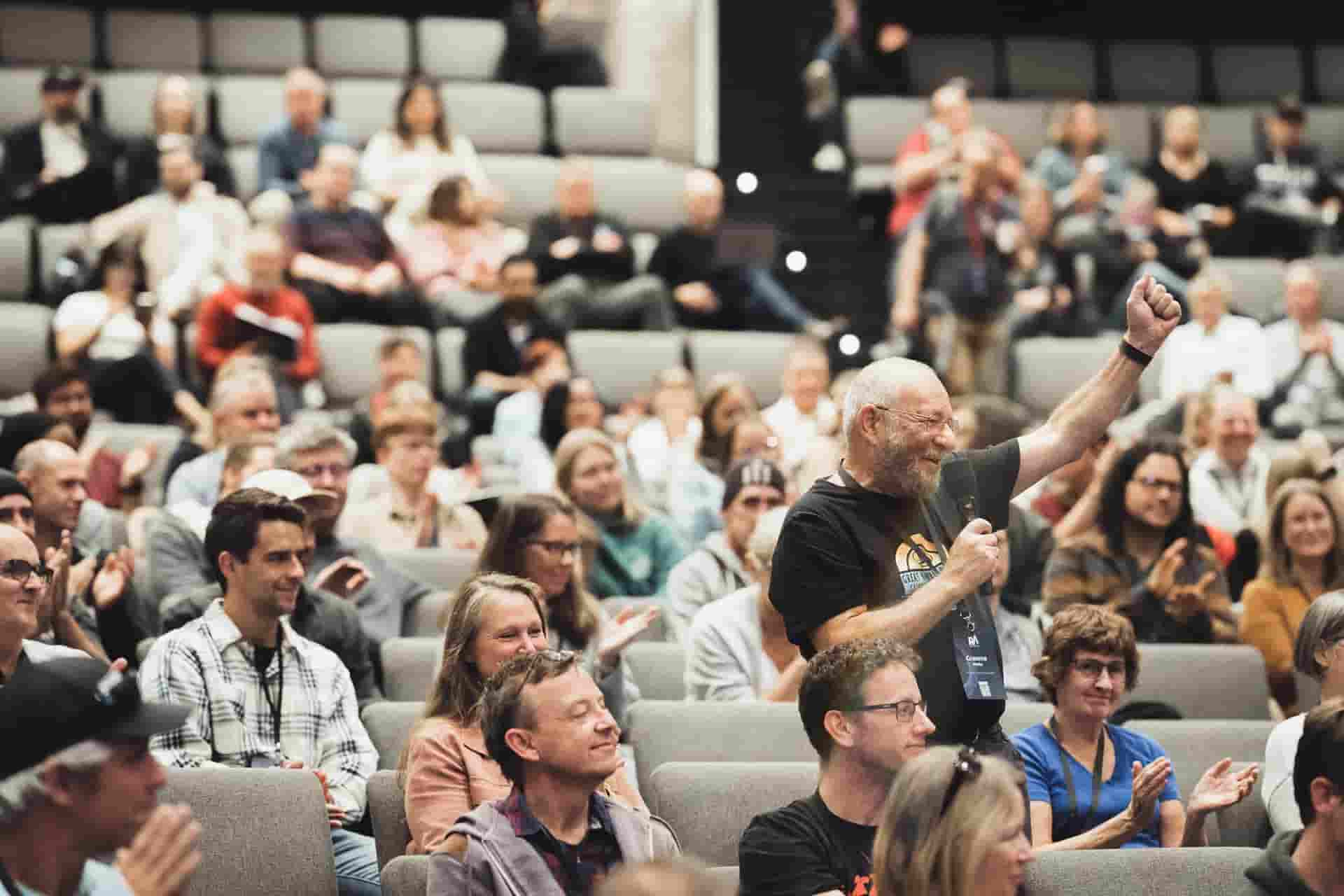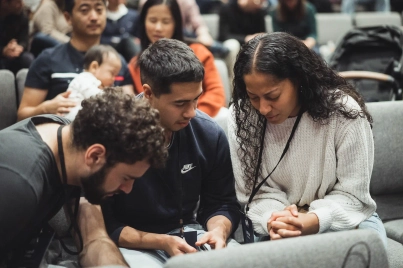Keen to increase the missional focus of your church? In this post Dave Jensen, shares the first five of eleven points that have helped his team create a greater missional culture within their congregation – Ed.
1) The second conversion
Statistically speaking, most Christians will not be actively evangelising. Yet having a congregation involved in evangelism is the most effective way of reaching most people. Subsequently we need to convert our congregations to the urgent and desperate need for their involvement: for God’ glory, the salvation of the lost, and their own edification. Evangelistic techniques and conversation starters are all very well, but they will be largely meaningless if your members are not convinced of the need to evangelise. As such, every opportunity should be taken from the front to encourage and honour evangelism even more importantly, pastors should be at pains to display, from the Bible where possible, why people should spend their lives sharing their faith.
2) Every Sunday is Grand Final day
We are desperate to equip and encourage our congregation to invite people any and every Sunday. In order to encourage our congregation, it is therefore vital for our staff team to ensure that we give our congregation confidence that when they invite someone, they won’t be needlessly embarrassed or ashamed by anything that happens. We work very hard at every Sunday being treated as ‘Grand Final day’: that is, ensuring that everything we do is done to the highest possible standard. It helps to remind ourselves that every single Sunday a guest is coming who has been witnessed to, prayed for, and invited by a nervous church member, sometimes for years. It’ important not to ‘drop the ball’ any week as it not only can put off the visitor, it can discourage your church members from inviting people in the future.
We consequently have a series of expectations in place for every Sunday, including but not limited to:
- The music and sound team rehearse and work very hard at leading us with excellent music
- The set up personnel arrive early to ensure the auditorium is clean, presentable and warm
- Service leaders work hard and rehearse at being friendly, warm and engaging
- Kids church talks are engaging and relevant to the parent as well as the child
- Church notices are short (3 notices only) and to the point
- Bible readers and prayers reflect the ethnic, socio-demographic and cultural demographic of the area
- The preacher works hard at making complicated concepts understandable for those with no background in Christianity or who speak English as a second language
- Morning tea and supper is more than church biscuits and tea: fresh fruit, home made cakes and hot food are particular favourites
None of these things (with music the possible exception) are beyond even a small congregation. Whilst these expectations might seem pedantic and over the top, we’ve discovered that doing the 1 per centers – that is, the little things make all the difference in building the confidence of our congregation to invite people to a Sunday service: and for those guests to want to return.
3) Speak to the outsider
Have you ever asked yourself the question, If I was a guest, what would I think about this?” A big part of Grand Final Sunday is focusing on the words and phrases that we use. Firstly, we make a point of welcoming and loving our visitors from the front. We never use the word ‘non-Christian’ to describe our guests, instead we use ‘guests’, ‘visitors’, or ‘newcomers’. Secondly it is vital to resist the urge to fall into ‘Christianese’: the phrases, terms and expressions that people in the church use as common place yet are, at best baffling, at worst off-putting, to any visitors and guests. This is as important in service leading, song leading, interviews and announcements as it is in preaching. Thirdly, we try and frame every service around the Gospel. Every interview or spot is an opportunity to proclaim the gospel, and also encourage our congregation in evangelism.
4) Evangelistic event mind-shift
It is widely recognised that conversions from one-off evangelistic events is rare. These events are valuable training for your congregation to learn how to invite people – and can provide a good introduction for the visitor to your church – however with no cultural Biblical world view, most people require far more information than could possibly be expressed in one talk. This has resulted in the appearance of what I call Christianity 101 courses, such as Alpha, Christianity Explored and Introducing God which clearly explain the gospel. However many pastors are still frustrated by the lack of fruit from these courses so how do we best utilise them?
We have found that having a demographically relevant and culturally contextualised evangelistic course is still the best way of reaching people with the gospel. In order for these courses to show fruit I would recommend the following guidelines:
- Approach them with an ‘event’ type mindset – advertise and promote the course with vigour and passion. Encourage maximum attendance for your regular members so that they can get confidence in the course. Put maximum effort into the night itself: provide a nice dinner, have background music, recruit a friendly team of ‘hosts’, ensure the talk is rehearsed and delivered at the highest standard etc.
- Run them on a regular, long term basis – run an evangelistic event once a term. Whilst a lot of courses go for 8 weeks or longer, consider trimming the course down to ensure it’ more palatable and more sustainable. We run a 4 week course which gives us enough time to explain the gospel and its consequences. Even if a turn out is low, stick with it. Invite regular, converted church members to attend so they’e confident enough to invite their friends next time around.
5) Having the next step
Having a pathway for conversion is crucial to effectively bringing people to know and trust Jesus, and to keep knowing and trusting Jesus. Often churches will run ‘Christianity 101′ courses without any plan for what should happen next. It is therefore vital to provide ongoing evangelism and discipleship after the initial course has been completed. Our church has our initial 4-week course, which then morphs into a basic Bible study which runs for approximately 12 months. If you’e able, each evangelistic course should have within it two people (pref. male and female) who act as table hosts in the course who will become the new groups leaders. These leaders should be evangelists. At the completion of the 12 months the attendees will then ‘graduate’ into a regular church growth group. If your church is too small to have this many separate groups (an additional 4 per year), the pastor should run this group and perhaps add any new people to it as the year progresses. It is frontline, vital gospel work, requiring high level leadership.
Click here for part two to this article: 6 More Steps To A Missional Culture



